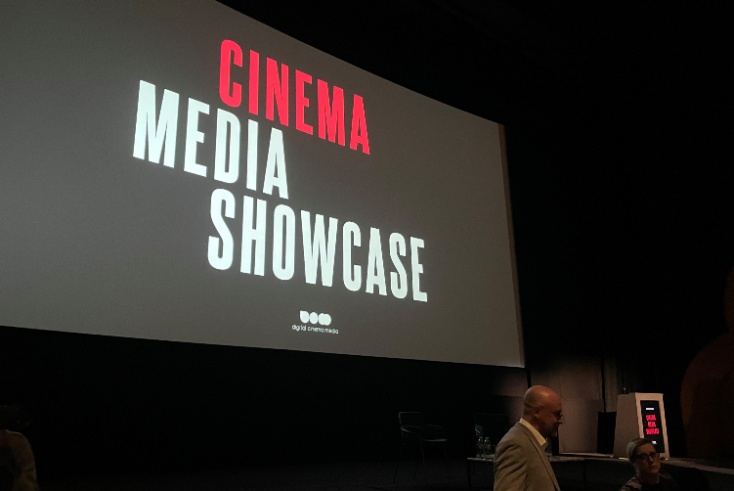DCM urges advertisers to ‘start media plans’ with cinema

Brands should use cinema activations at the beginning of campaigns as a “primer” for other media, the UK’s biggest cinema sales house told an industry audience at its annual Upfronts today.
Karen Stacey, CEO of Digital Cinema Media, told delegates in the Odeon Cinema Luxe Leicester Square that cinema works best on plans when it is treated as a “starter medium”, but at the moment it is often used at the end of media scheduling at risk of being left out of campaigns entirely.
This strategy works particularly well for brands launching new products, new campaigns or new messages, which Michael Bensley, head of client at DCM, explained with examples including ITVX’s ad with John Boyega, McDonalds “Raise Your Arches” and KIA changing its strategy to go after an upmarket audience.
Bensley said: “I do not want to say cinema should be the first media put on a plan or the lead AV in the media mix, that is not what we are saying, but we cannot plan in siloes. It has to be a component in the media mix.”
DCM has made resources available for brands that are new to cinema around these topics.
TVRs, AV Maximiser and Effectiveness Roadmap
DCM announced it will also be also launching several tools later this year, “Cinema TVR reports” on Adwanted platform Connected which will be available from 18 July.
In December, DCM will launch “the AV Maximiser” using IPA Touchpoints data and with collaboration from RSMB and Lumen Research.
Agencies will be able to input audiences, TVR and budget goals, the tool will then optimise the media mix for maximum (1+) reach and the output will give results for reach, attention and cost-efficiency.
In September, there will also be an “Effectiveness Roadmap” document made available for planners, alongside measurement from Differentology and spot data report for econometrics.
The importance of the theatrical release
The Upfronts keynote speaker, Neil Marshall, head of theatrical film distribution, local film production and acquisition at Warner Bros, talked about the importance of the exclusive theatrical release window to the studio and how it had tested out content on Max, its video-on-demand service.
“We are not making movies for streaming any more. We are actively now doing all movies for theatrical releases.” Marshall said.
He added: “We will continue testing and researching this business, but we think we have a model that works with the 31- 45-day exclusive theatrical release window. We have flexibility in that if it is performing well we could extend that window, and we are always looking at that life cycle to research into that audience and crossover between SVOD and home entertainment.
“I think it is really important to have that theatrical window there where the only place to consume that content is in cinema.”
Stacey highlighted that after experimentation streaming platforms Apple TV+, Amazon Prime Video, and Disney+ have turned to theatrical releases for the drops of certain films, and questioned if or when Netflix would follow.
DCM showed data that demonstrated films with longer exclusive theatrical release windows had higher “buzz” according to Ampere Popularity Score data because they created scarcity. For example, Avatar: The Way of Water had a 109 exclusive theatrical release window and had more than double other films like Knives Out score with 145.9 versus 62.2.
What’s on slate for next year?
The Upfronts also saw trailers and teases of films from the upcoming slate, with particular buzz being built around “Barbenheimer”, namely Barbie and Oppenheimer being released on the same day.




